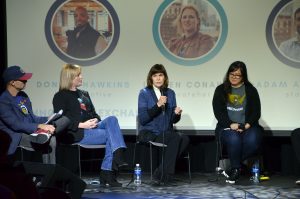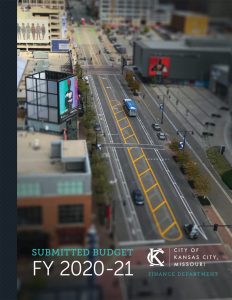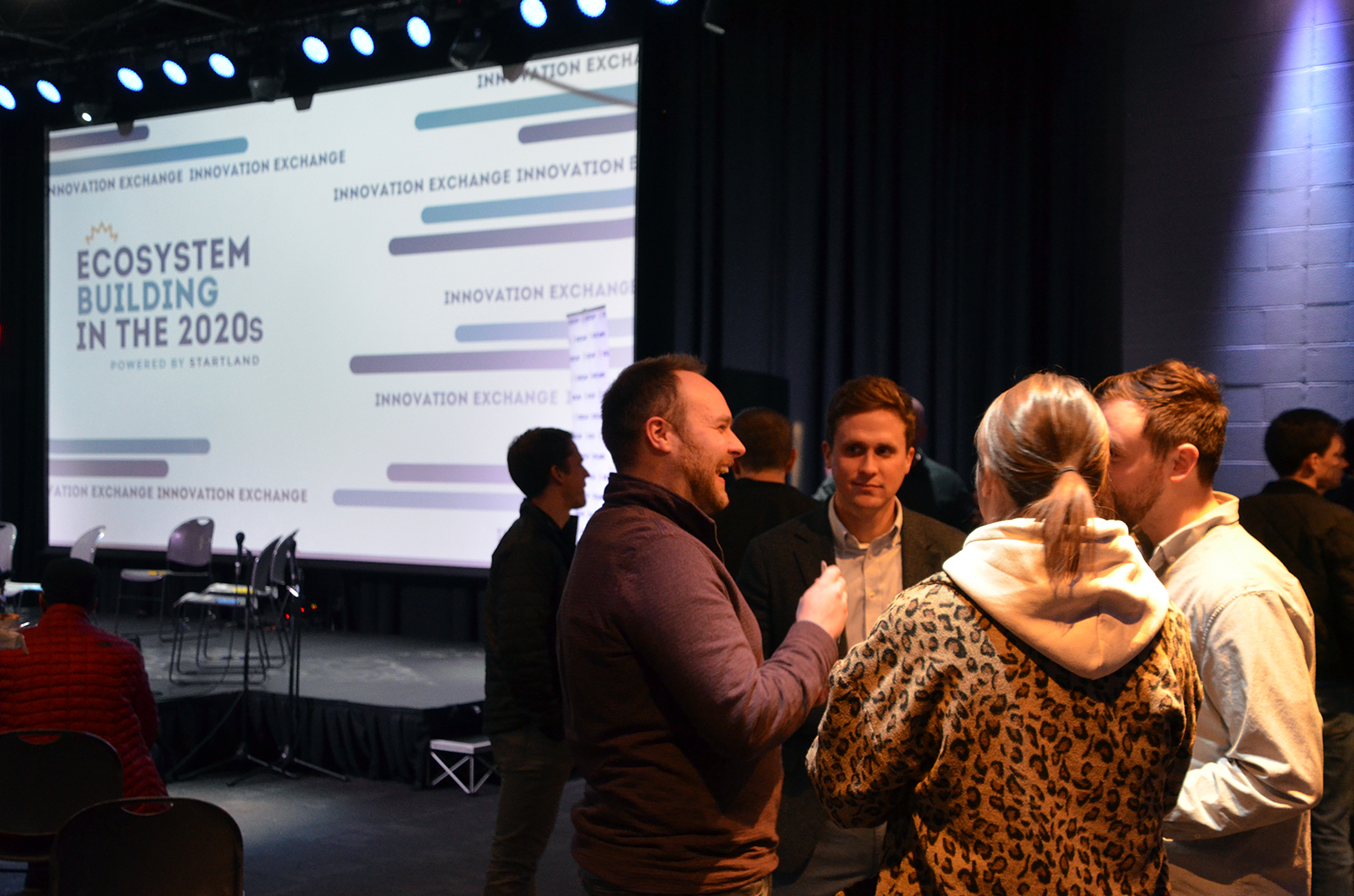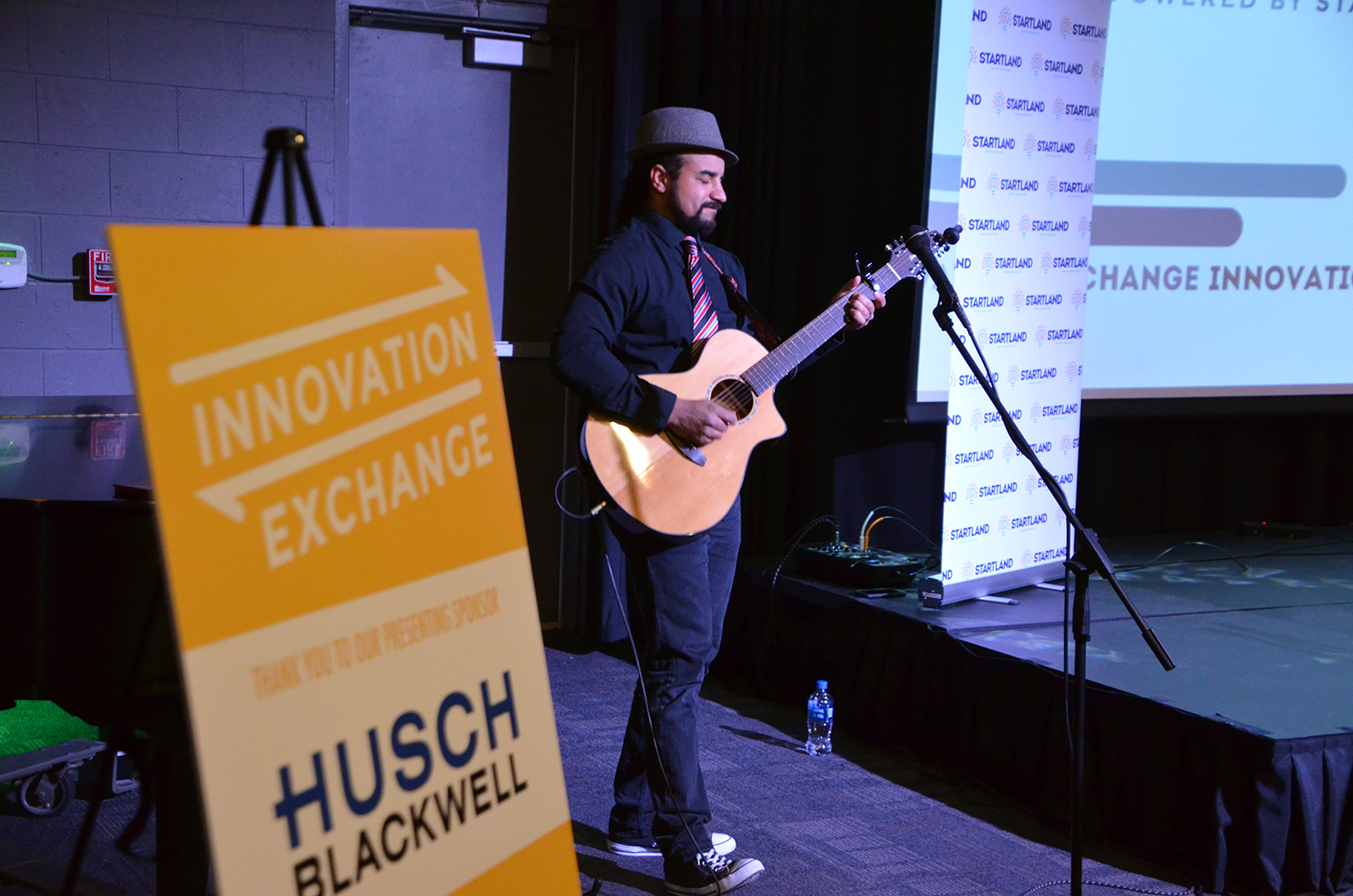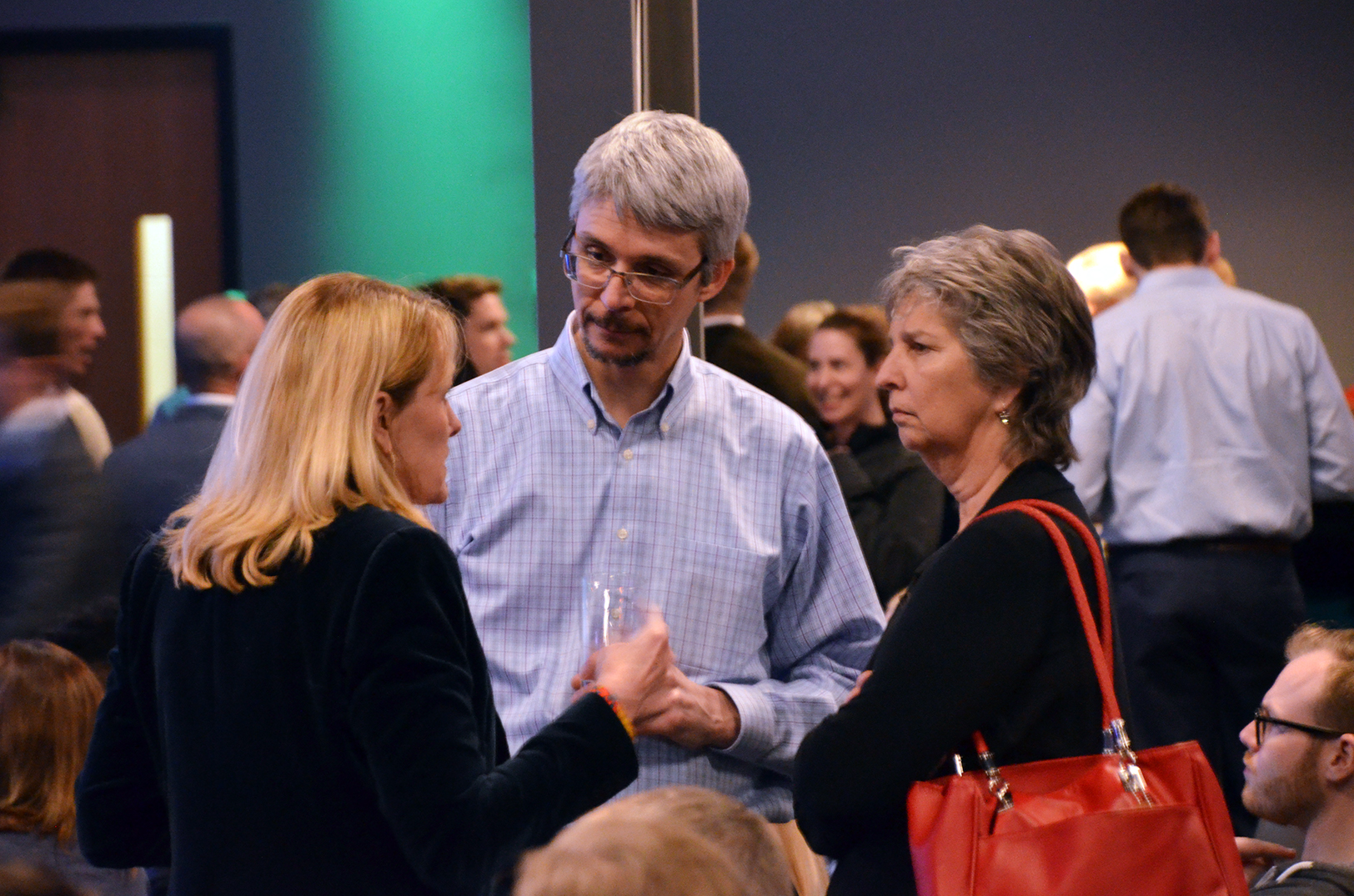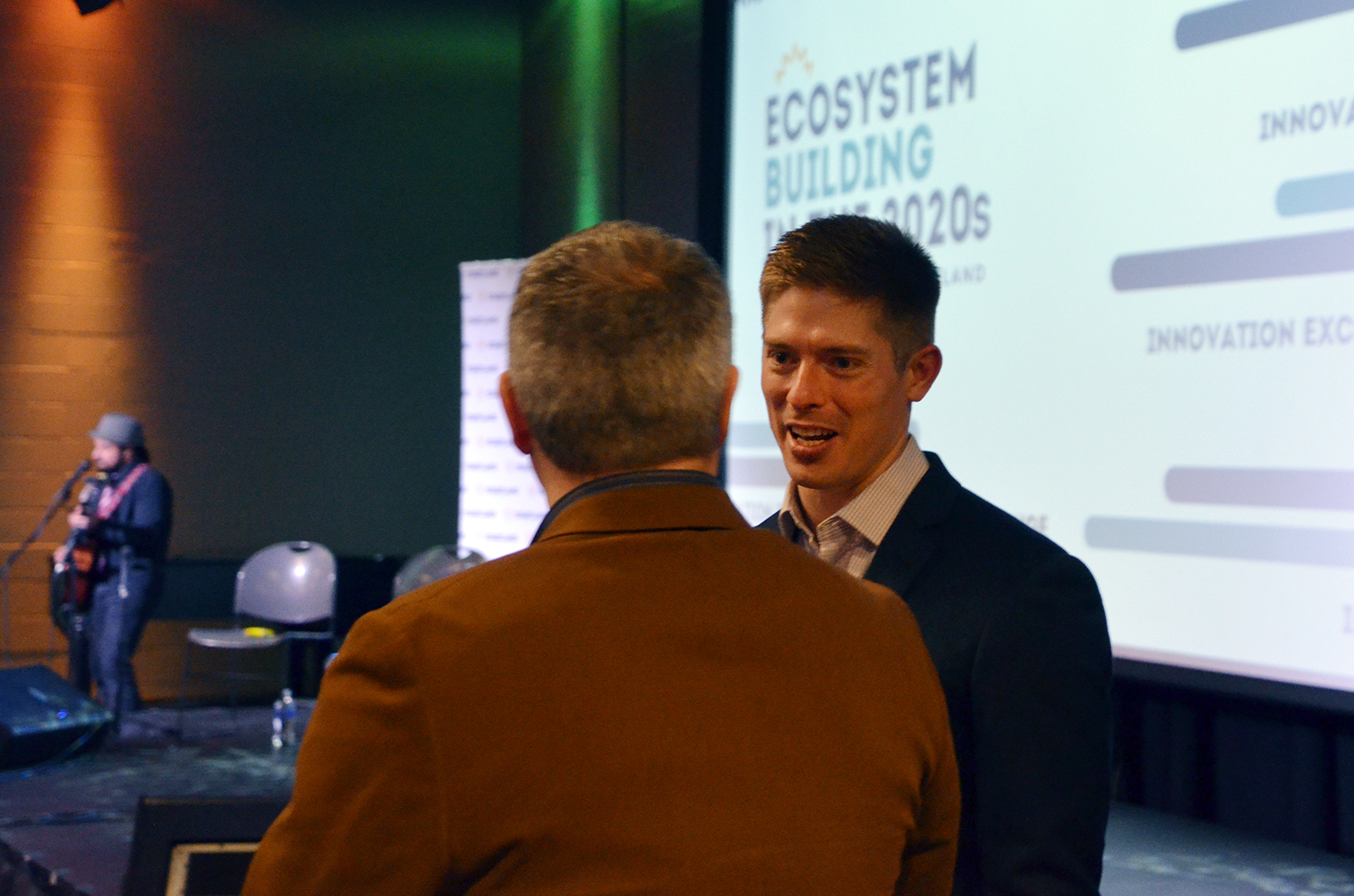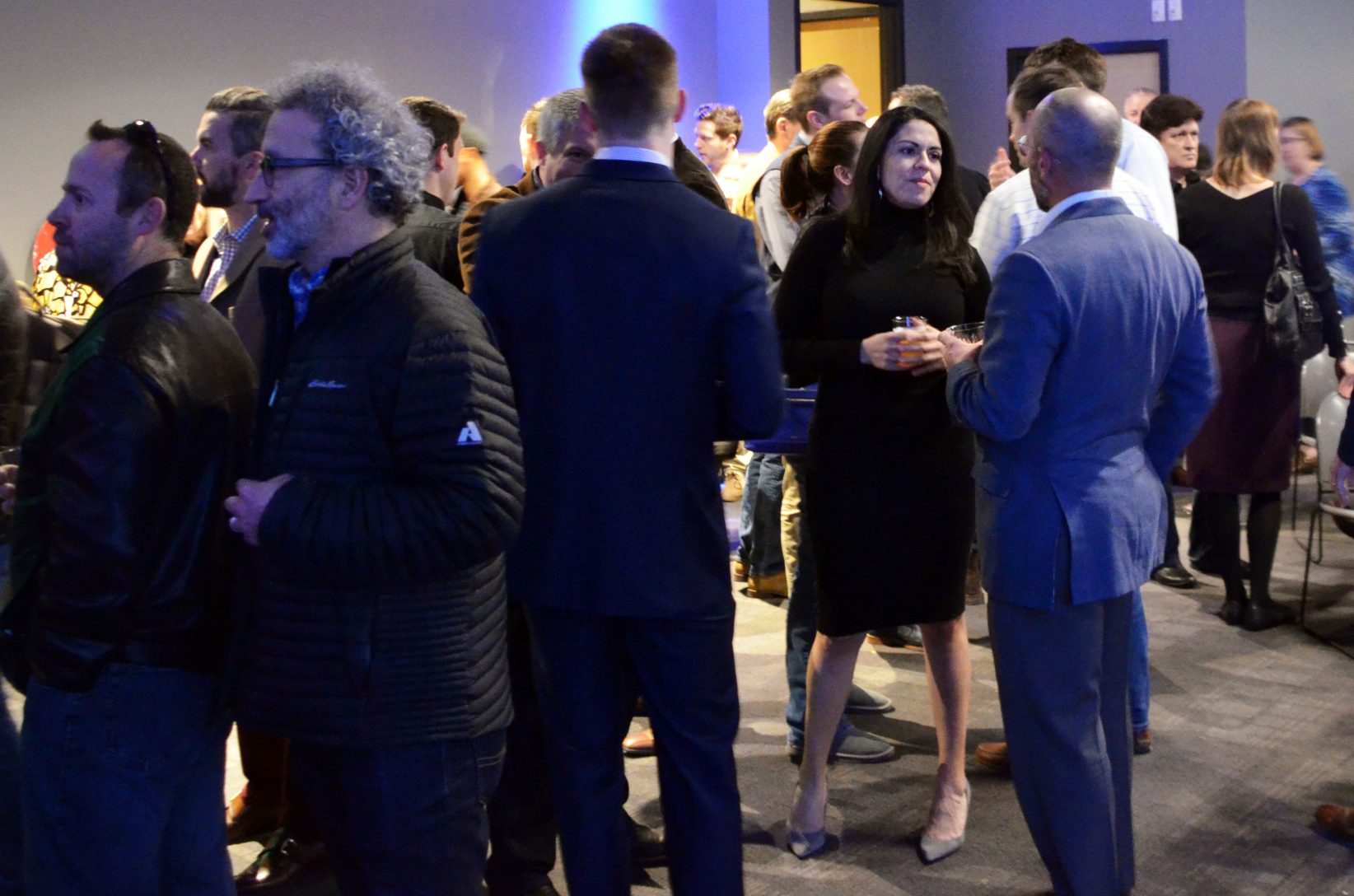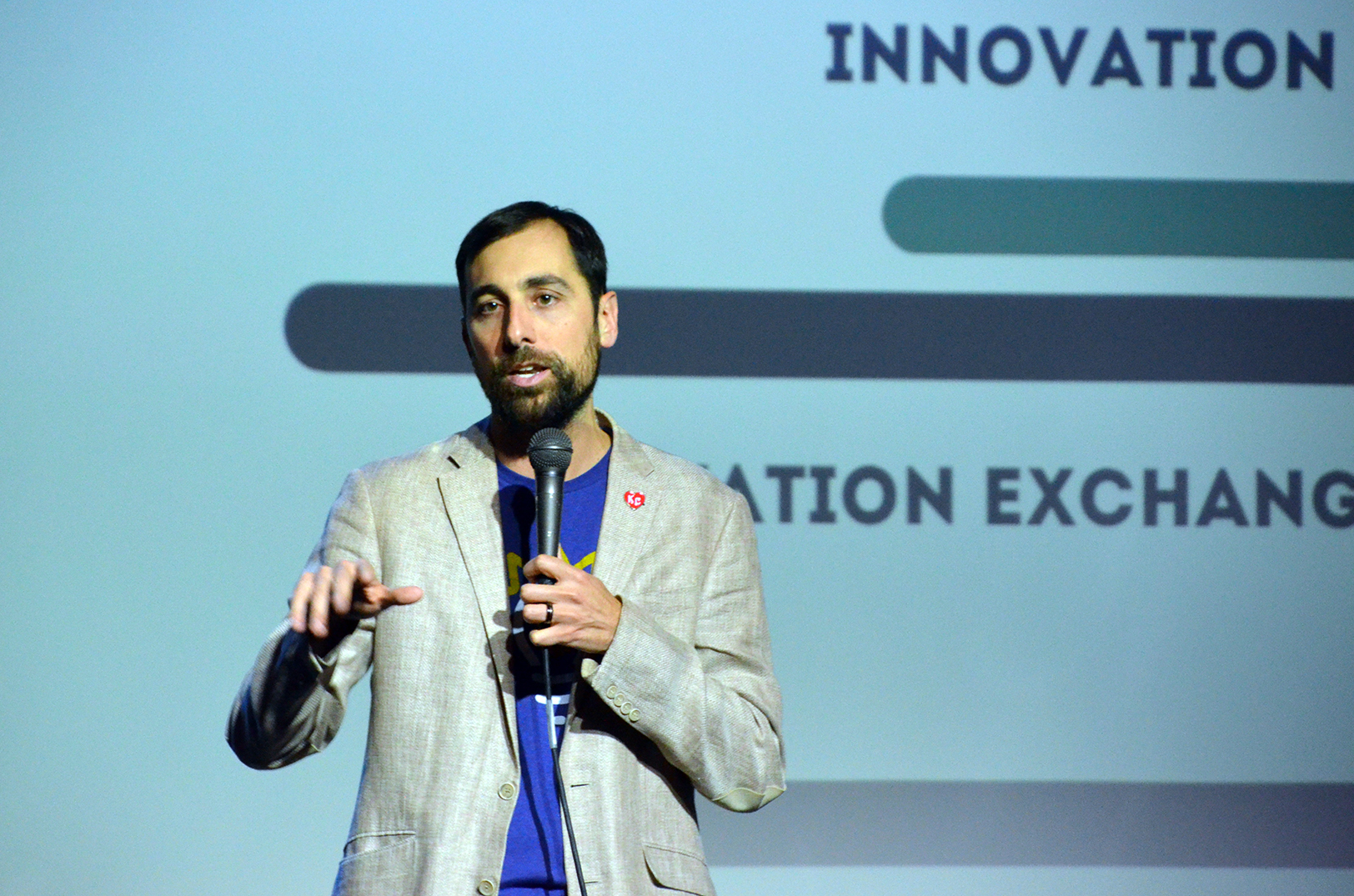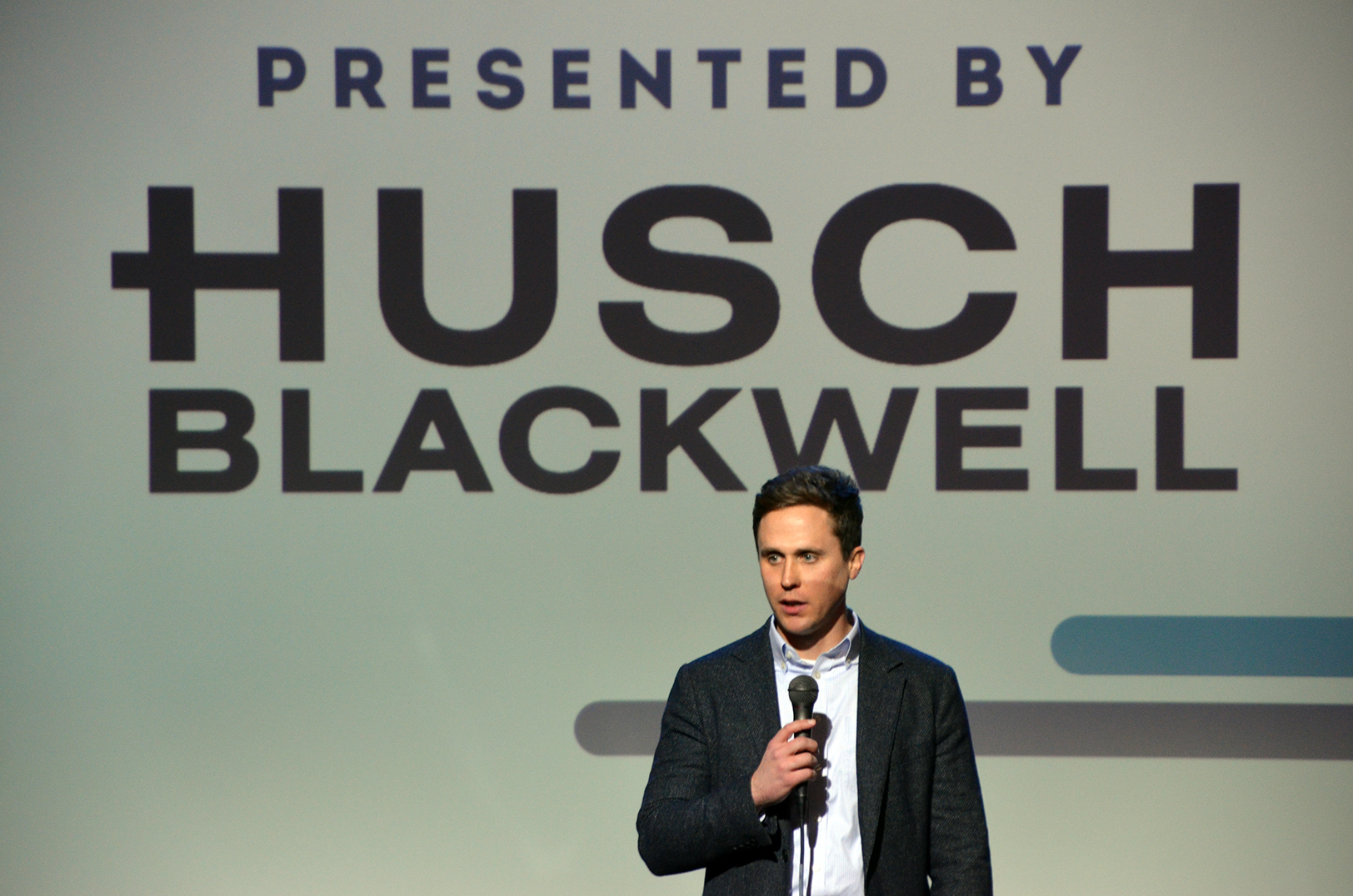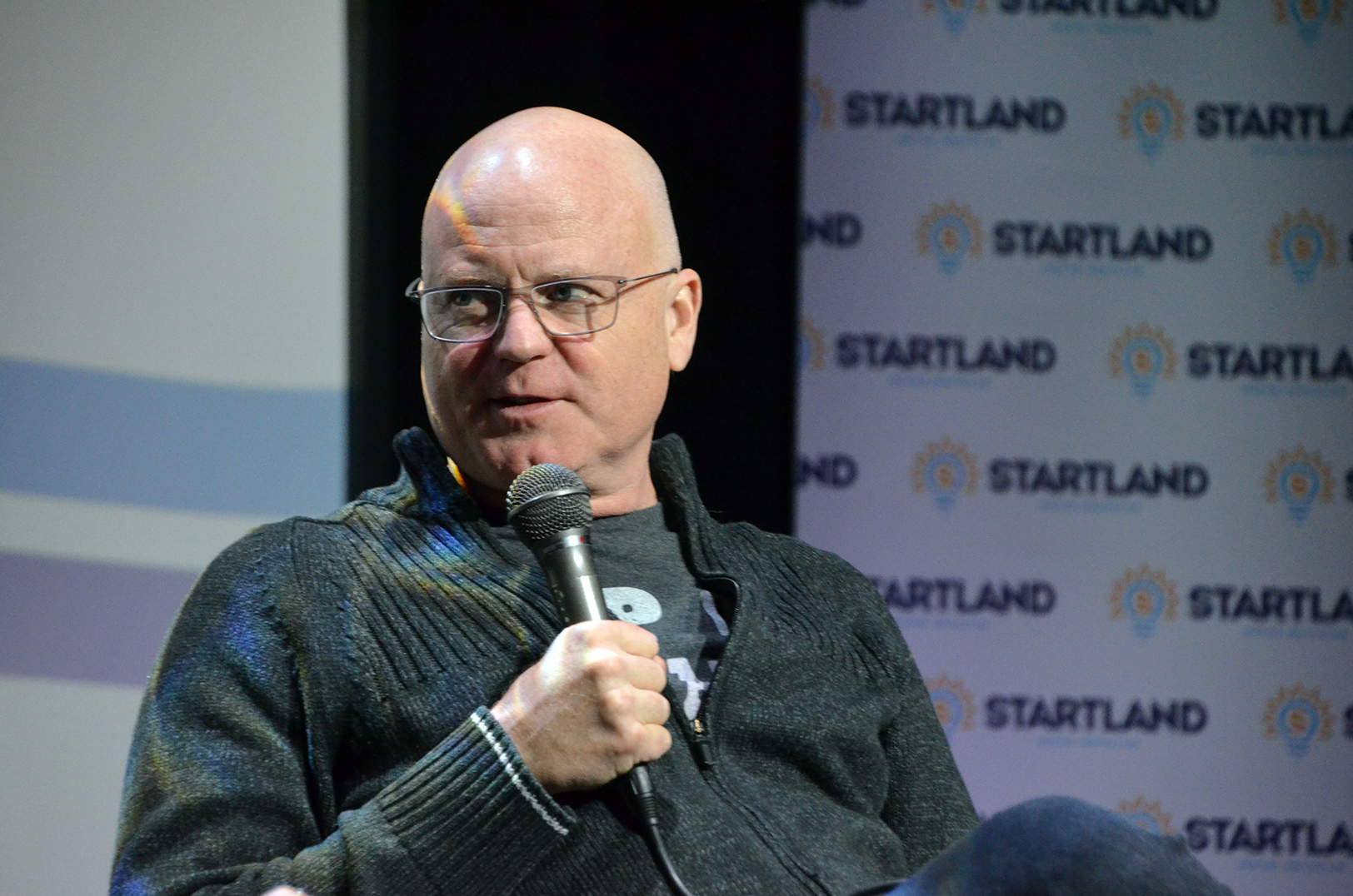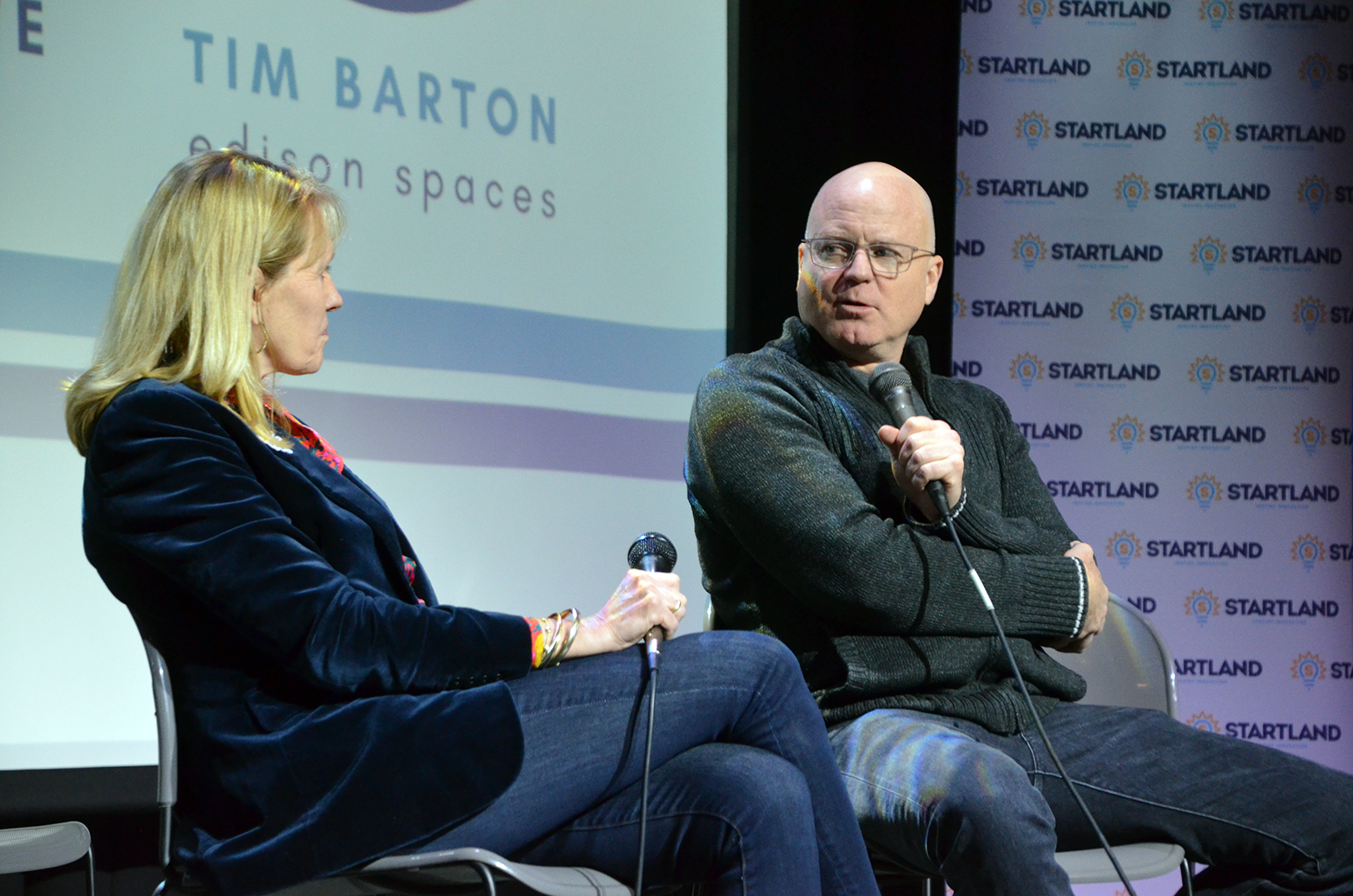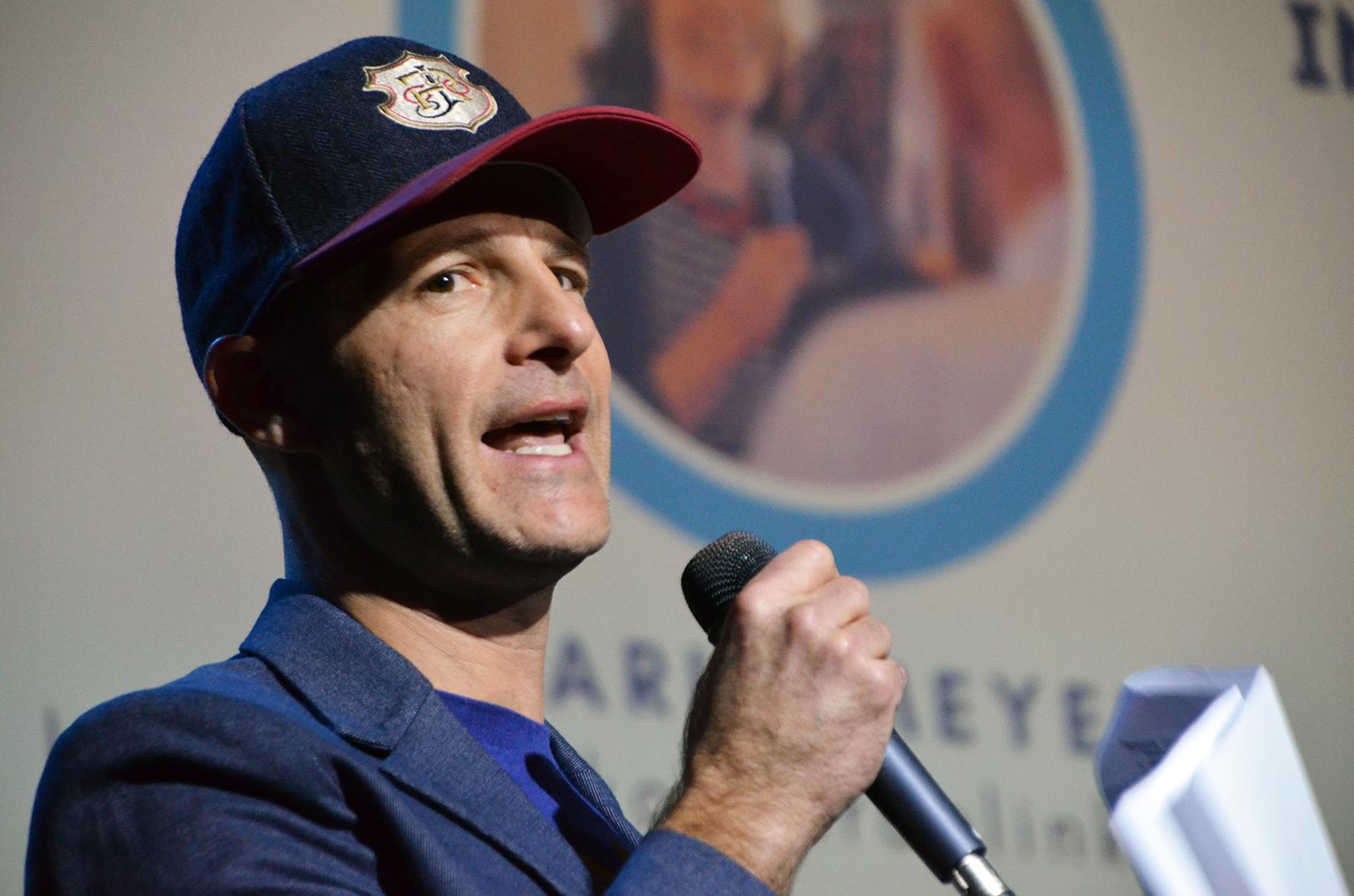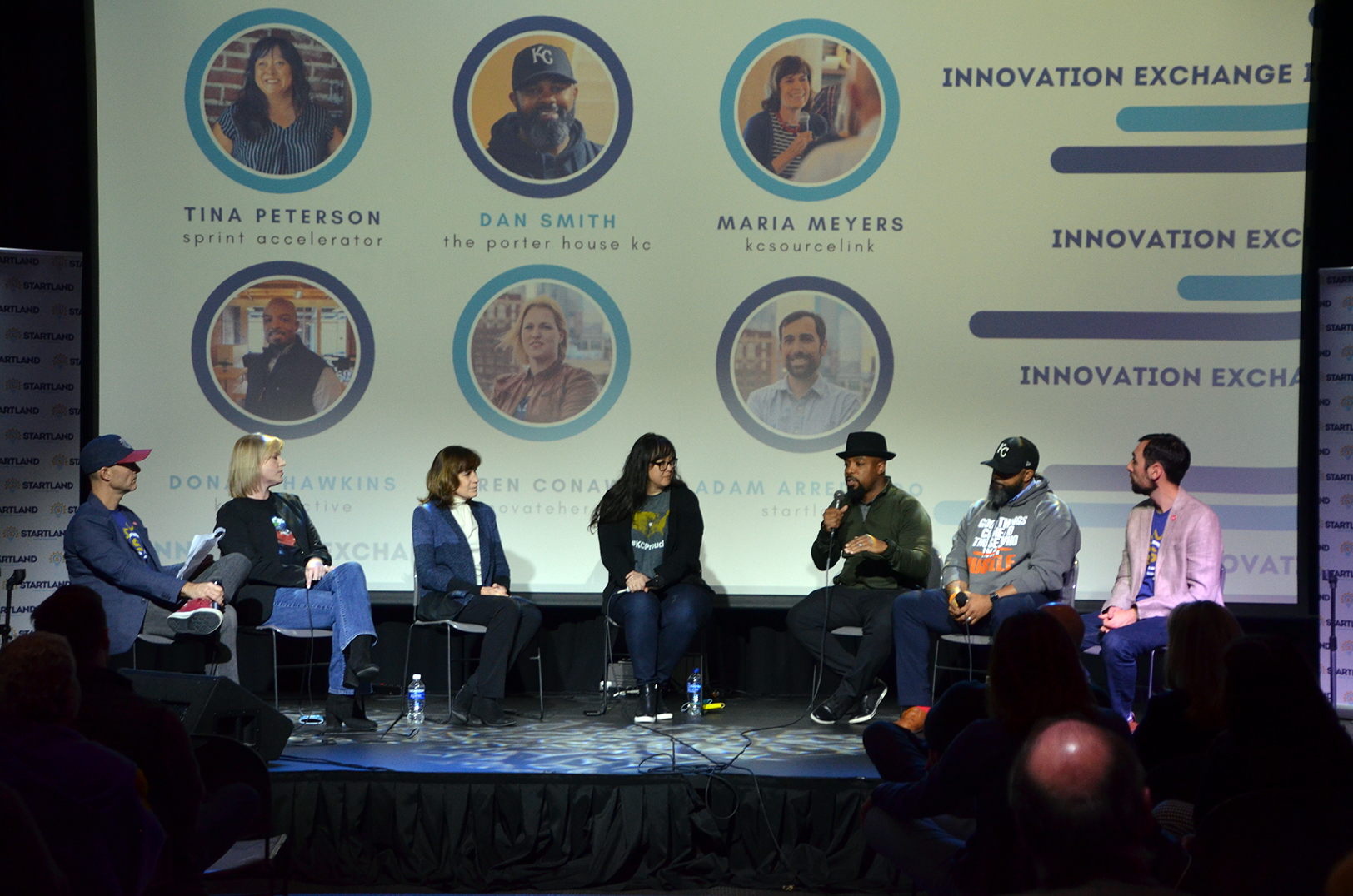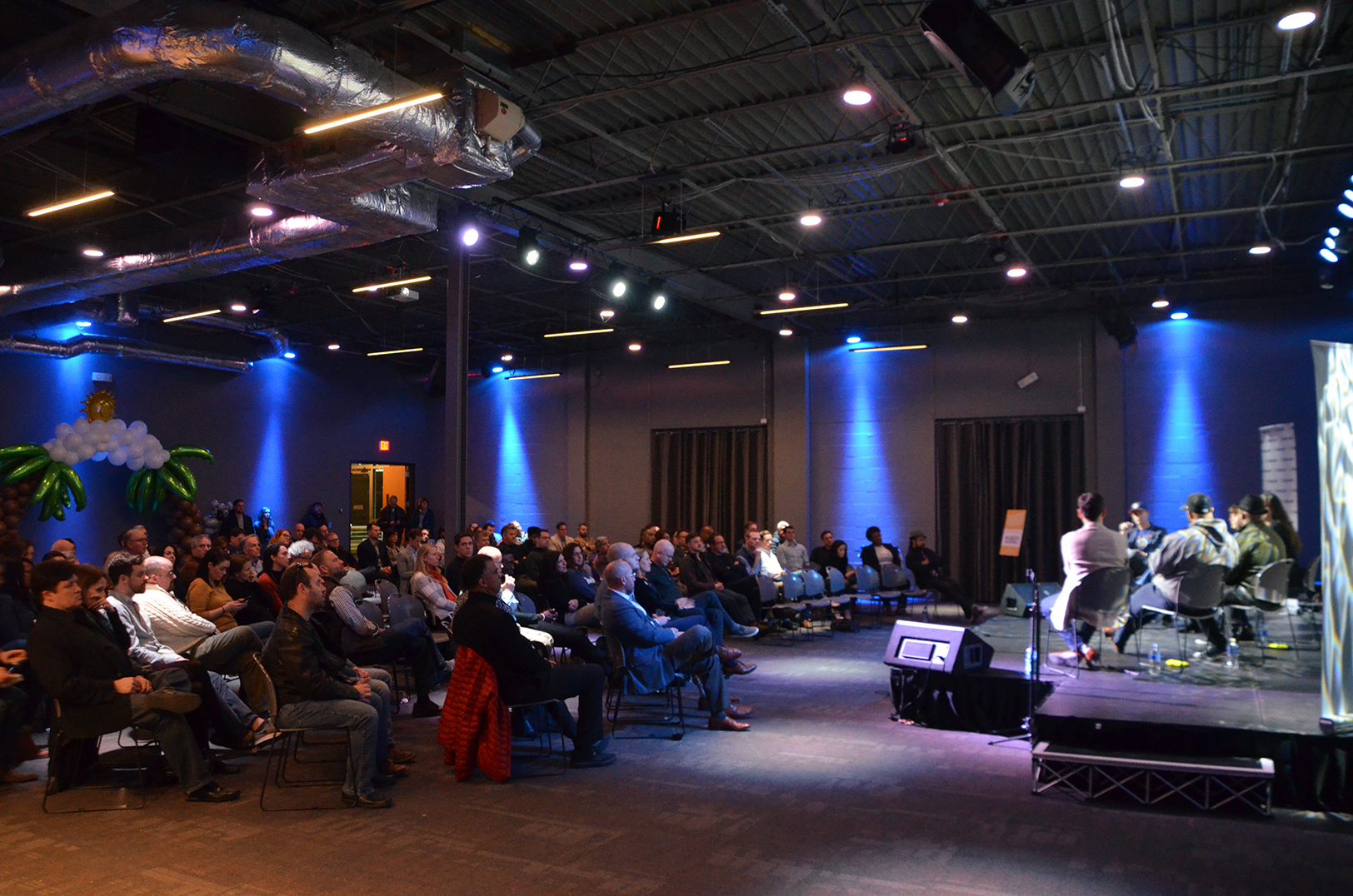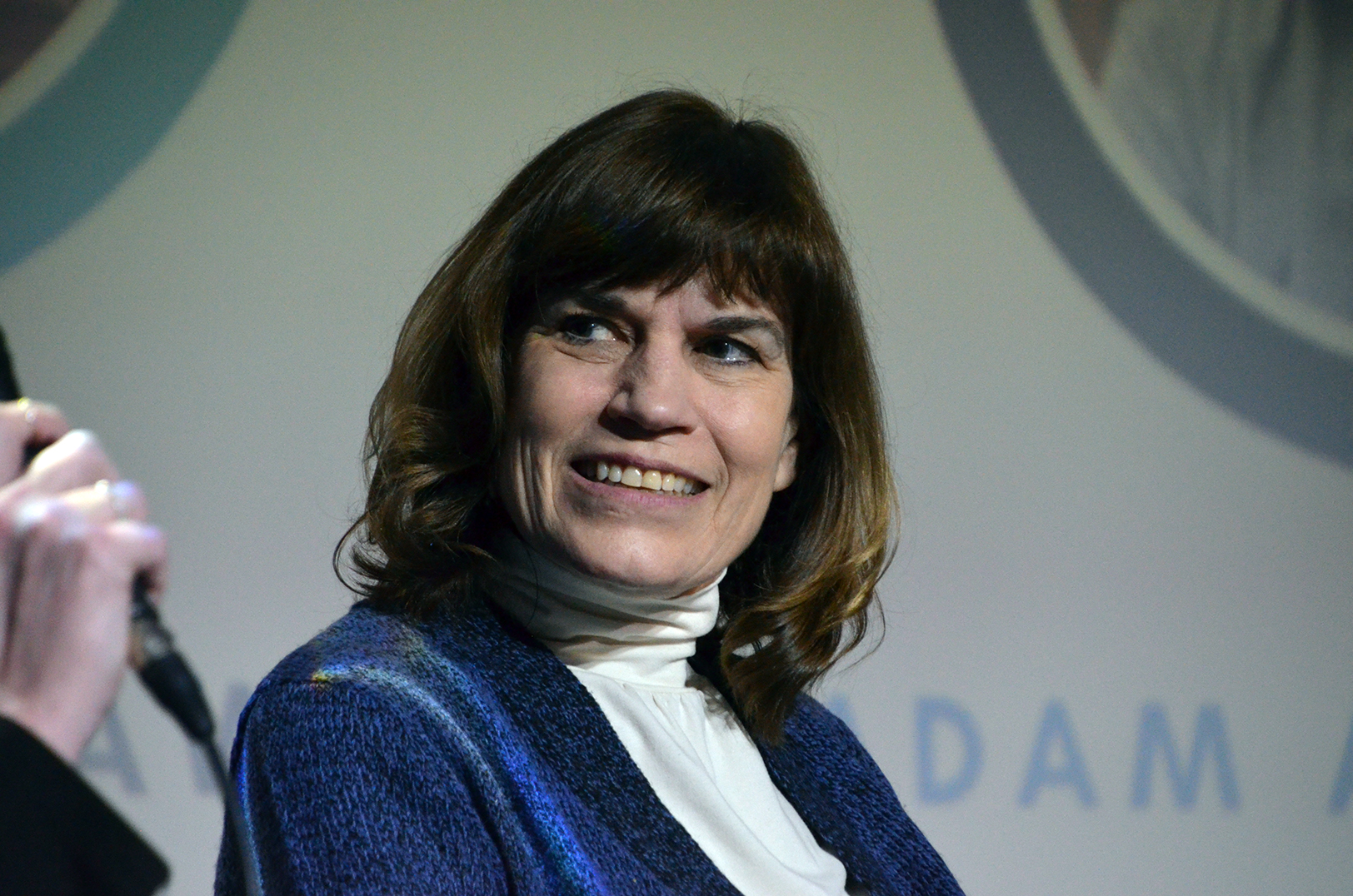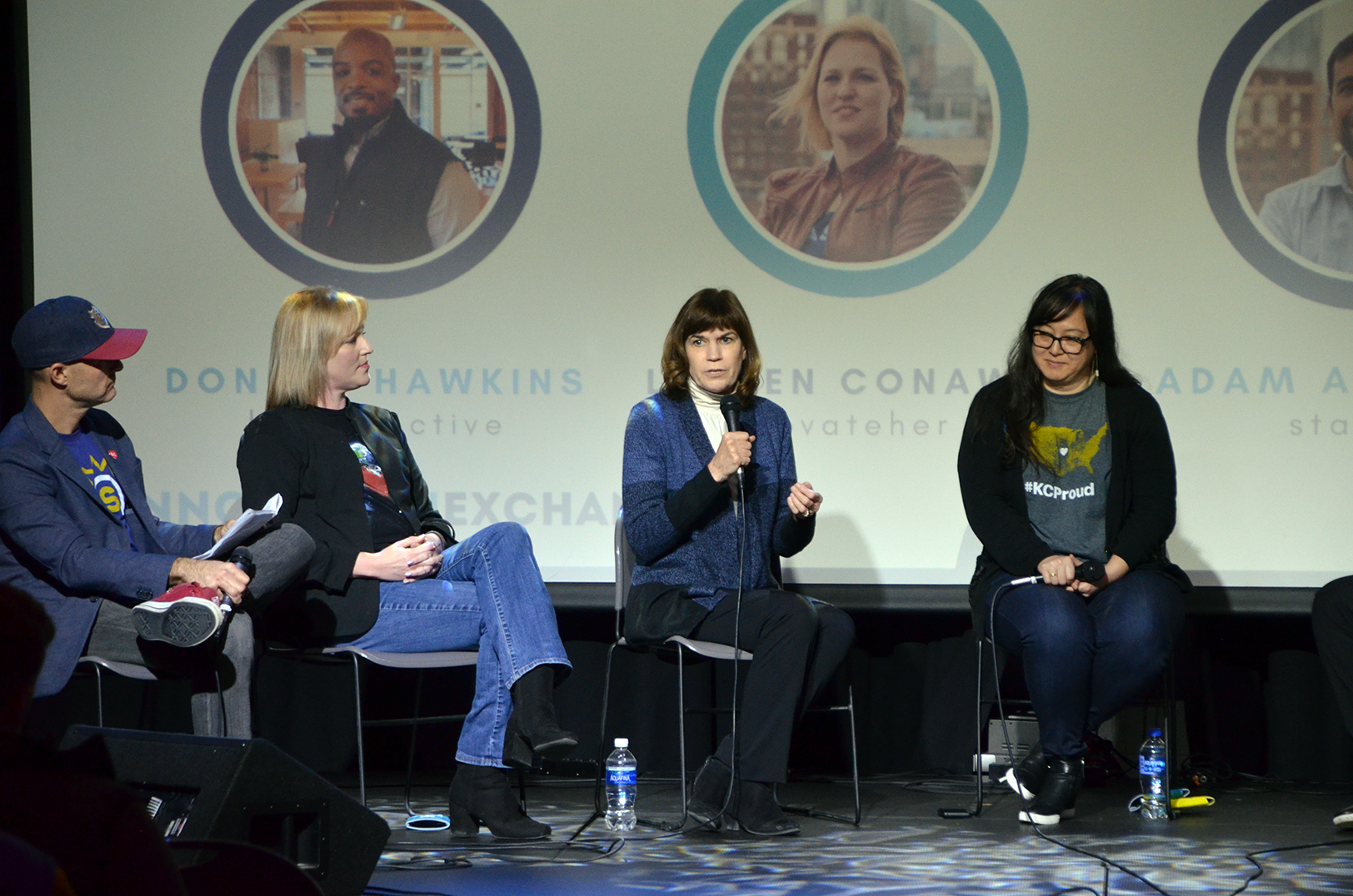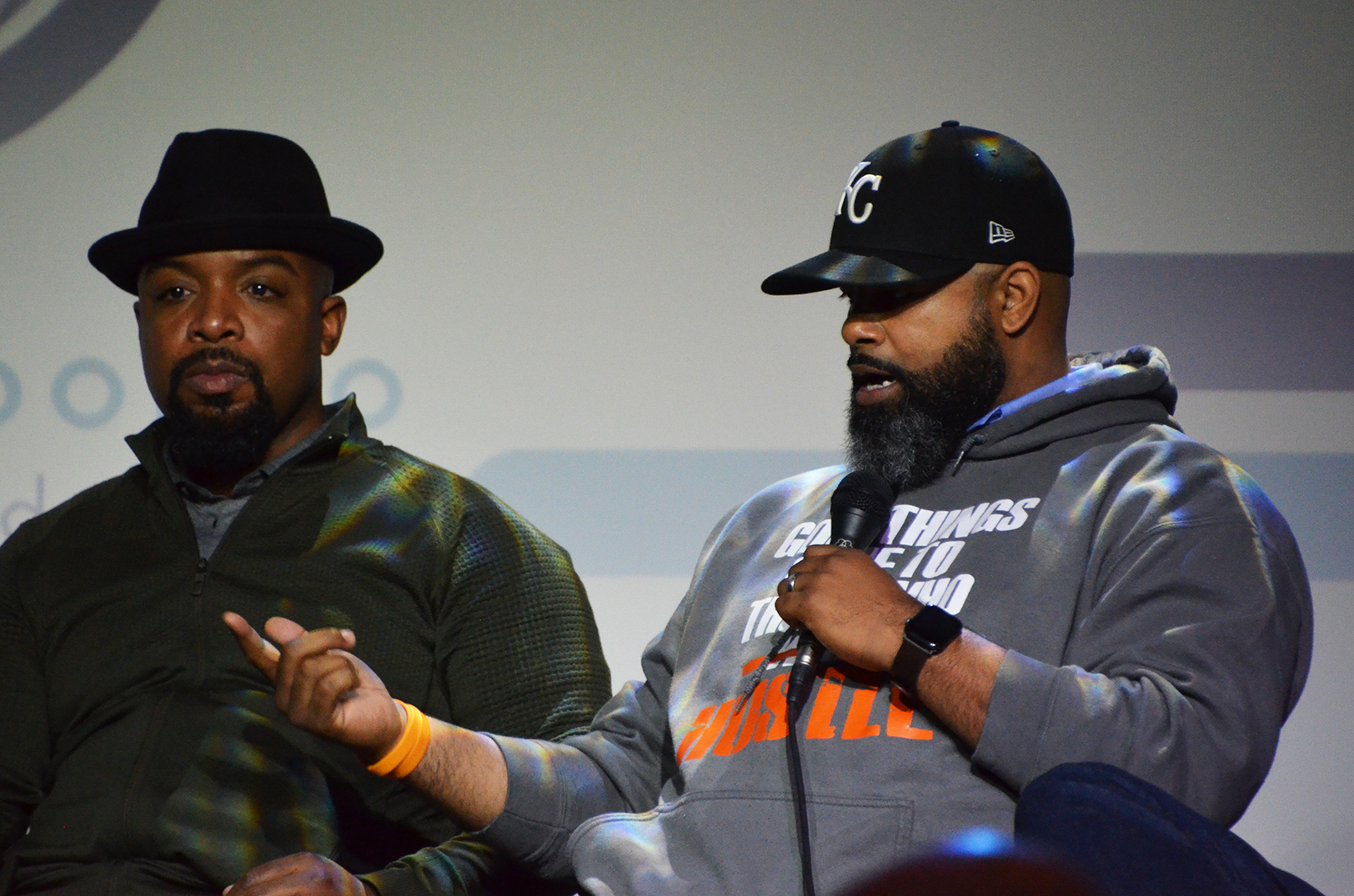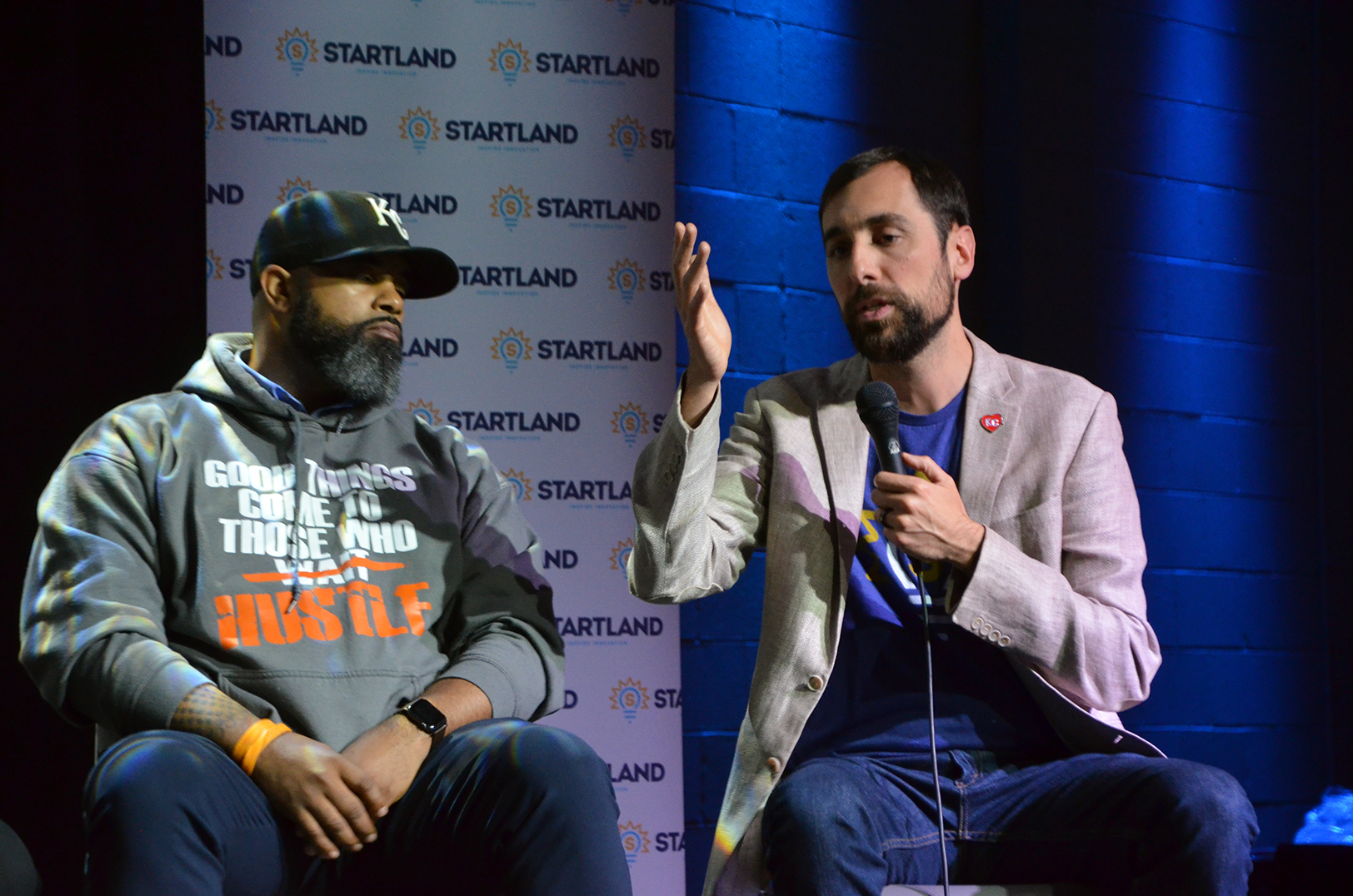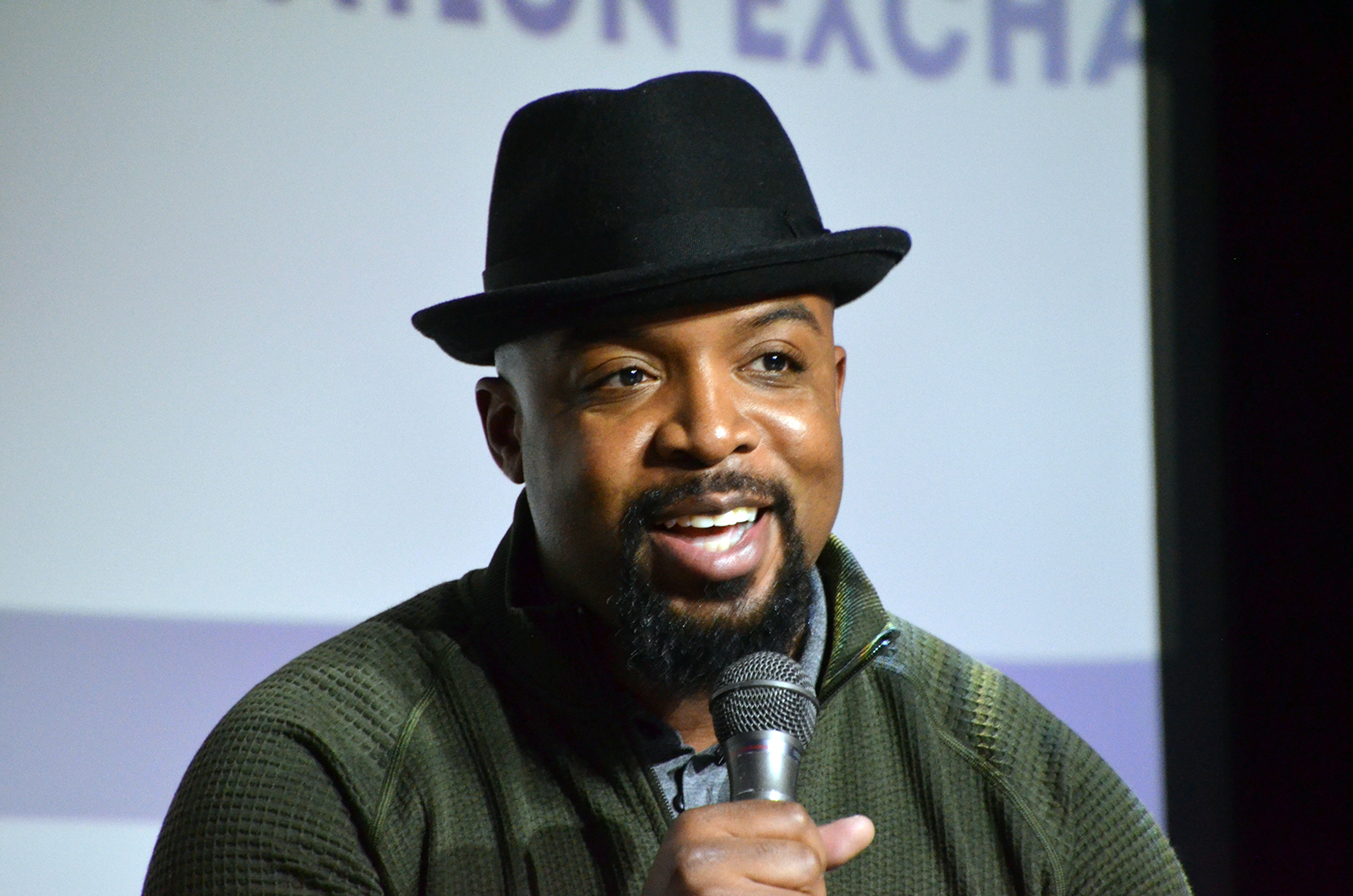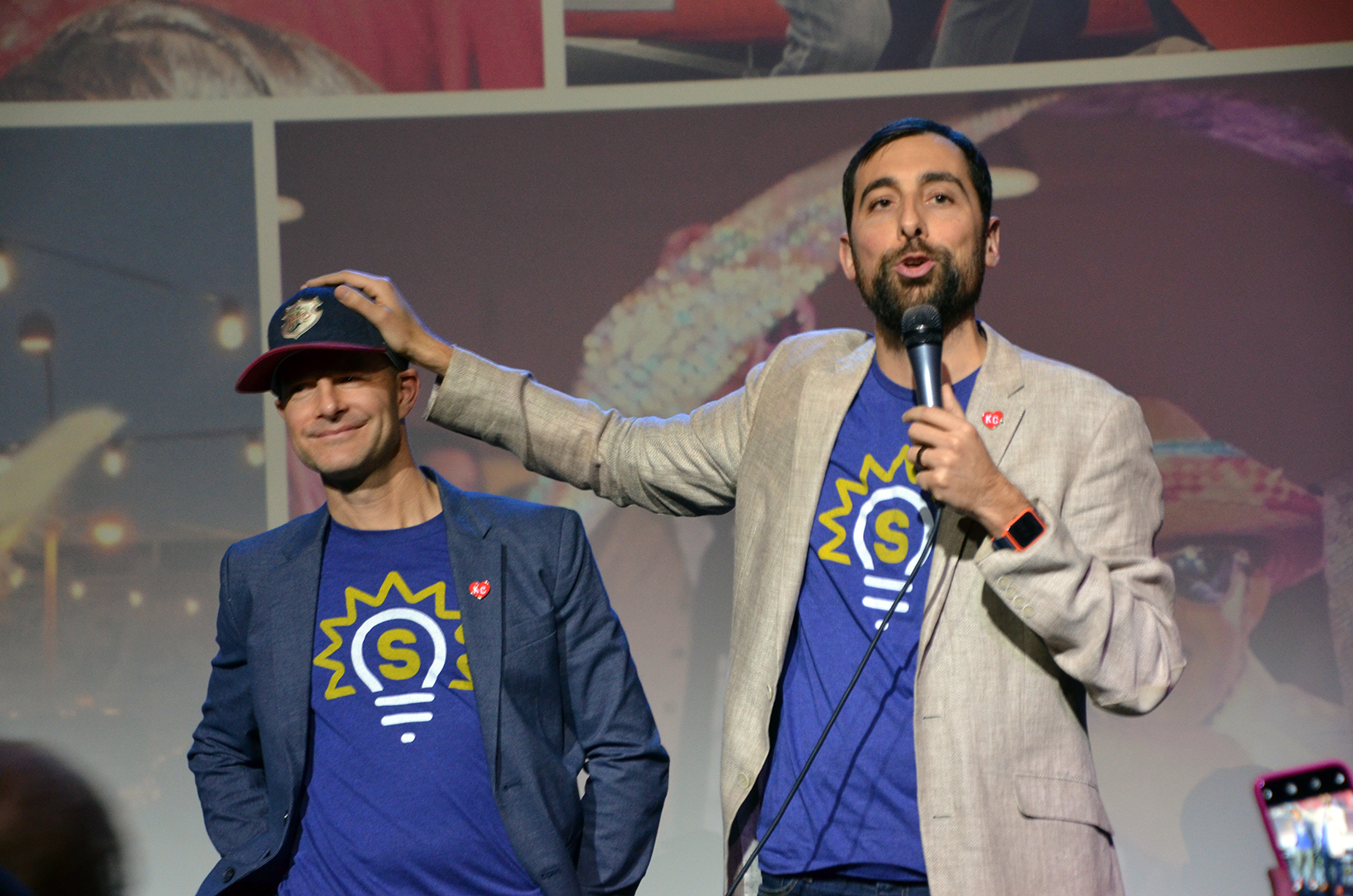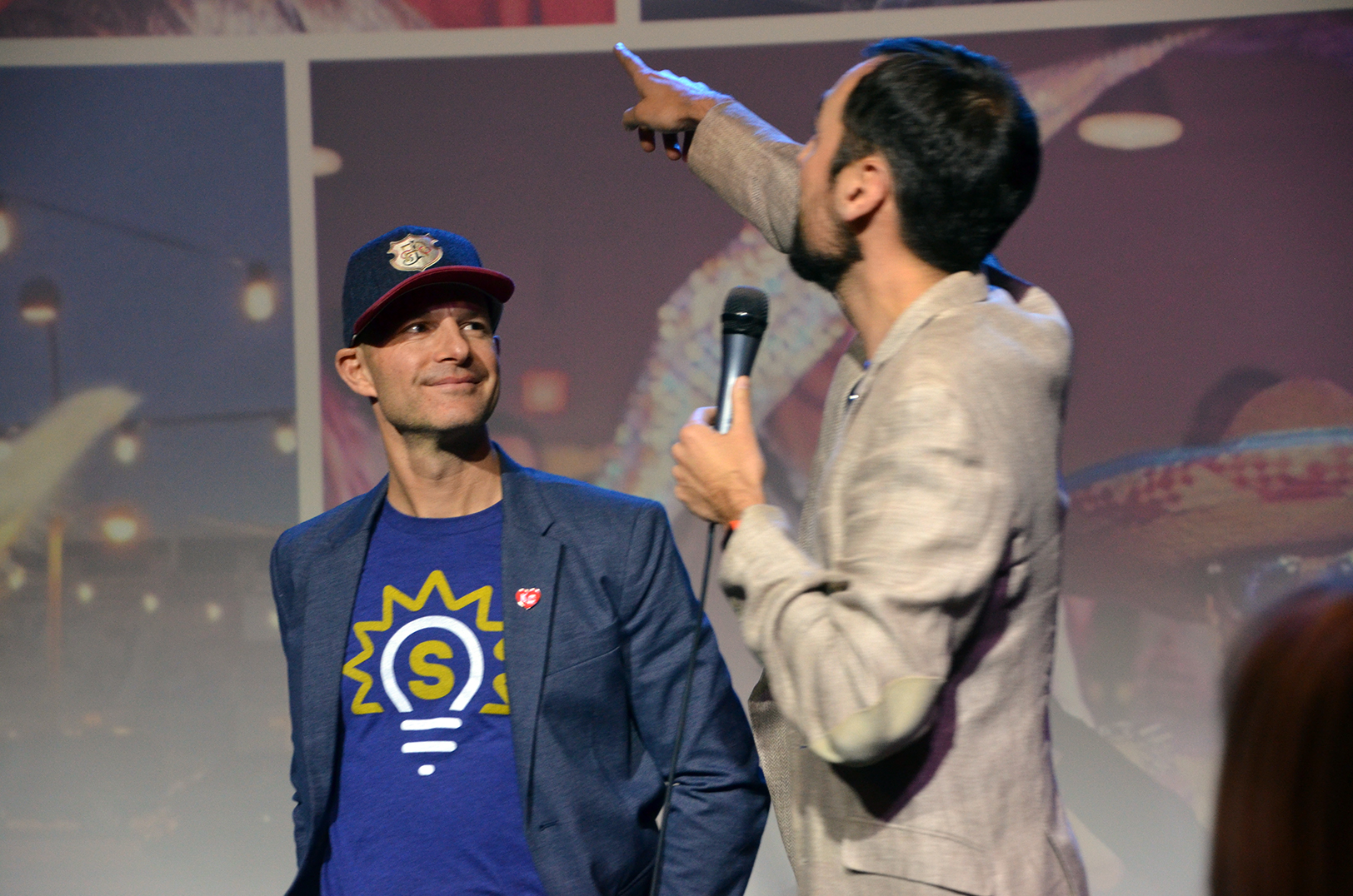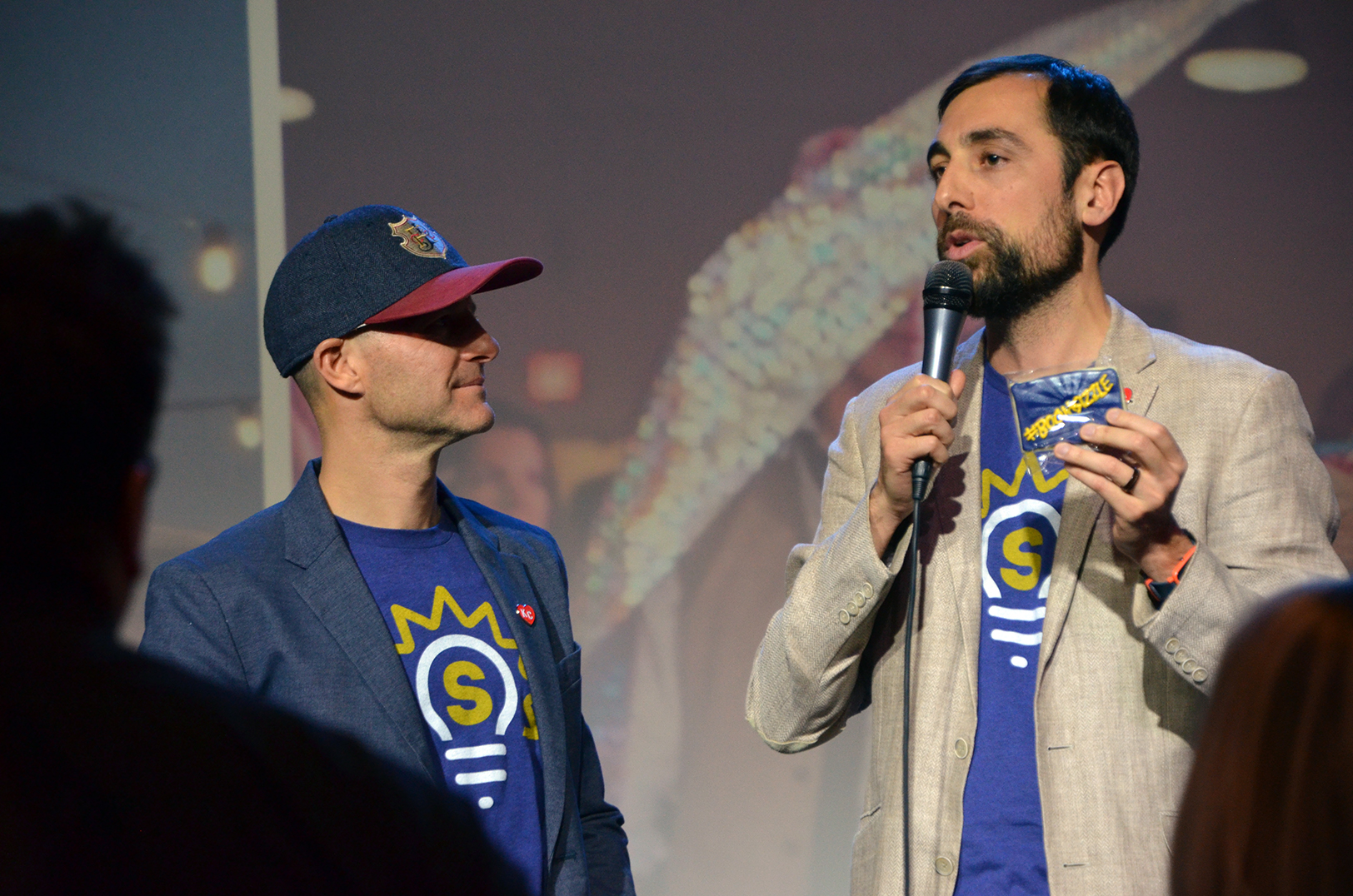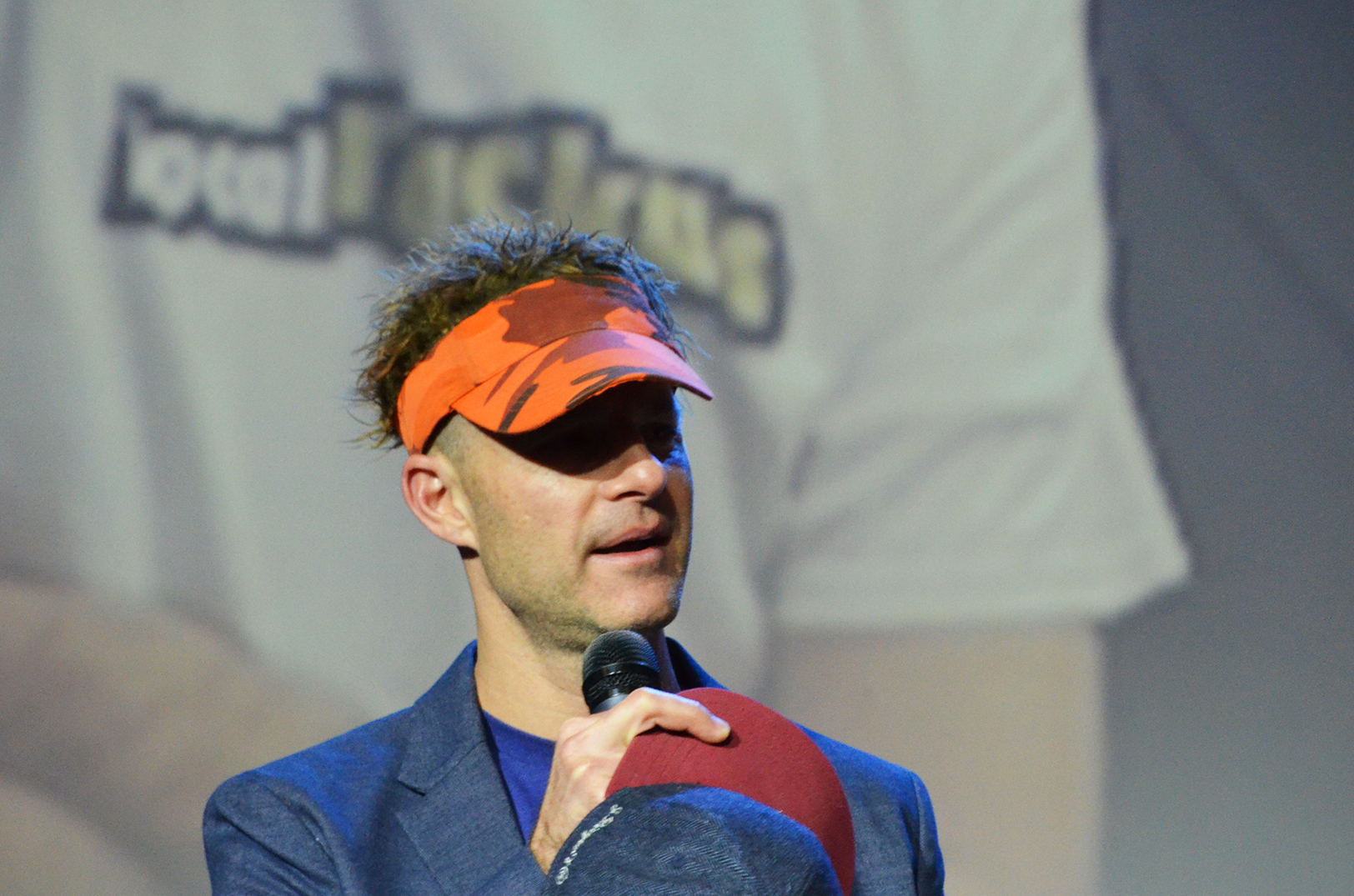Startup support is an investment — not just a cost to the city, a leading ecosystem builder said Thursday following a proposed KCMO budget that would reduce funding for groups aiding KC’s emerging innovators and risk-takers.
“Go around to meet the entrepreneurs, understand their stories — see how we max out our credit cards to hire people who pay taxes that they use to fill potholes and do all the neat things that the city has planned,” said Donald Hawkins, co-founder of the KC Collective founder network. “That comes from our pockets in a lot of cases.”
Hawkins addressed the submitted budget cuts presented by Kansas City Mayor Quinton Lucas that would remove $50,000 for the LaunchKC program and $75,000 for KCSourceLink, as well as $300,000 for the Keystone innovation district, Thursday during STARTLAND’s Innovation Exchange, presented by Husch Blackwell. A panel focused on ecosystem building in the 2020s also featured Maria Meyers, KCSourceLink; Lauren Conaway, InnovateHER; Tina Peterson, Sprint Accelerator; Dan Smith, The Porter House KC; and Adam Arredondo, STARTLAND.
Check out a photo gallery from the Innovation Exchange event at the bottom of this story. STARTLAND, formerly the Kansas City Startup Foundation, is the parent organization of Startland News.
Click here to read more about the proposed reductions in support.
“For entrepreneurs, it’s tough — especially early stage venture,” said Hawkins, who also is the founder of fintech startup Griffin Technologies and a member of the Pipeline Entrepreneurs network. “Because we hear this title of Kansas City being America’s ‘Most Entrepreneurial City,’ but that’s a tough pill to swallow when we see things like [these budget cuts].”
“We see the statistics,” he continued, referencing fluctuating reports about Kansas City’s startup ecosystem’s health. “One month, we’re in the top five for this, the next month we’ve fallen off the list. So it’s tough to know what’s real and what’s fake. We want the city to support what we’re doing, but at the same time we know the city has a lot of other focuses.”
Lucas’ submitted budget also eliminates the Office of Culture and Creative Services and removes $175,000 for the Film Commission — points of contention in the proposal that have garnered more media and public scrutiny than cuts to entrepreneur support, as well as a direct reaction from the mayor on social media.
“We have a roughly $4.4 million funding deficit that was the source for the programmatic [budget cuts] mentioned,” Lucas said, responding to a Facebook post by attorney David Oliver that was critical of the arts reductions. “That cost spike comes in connection with our new convention center hotel. With additions of zero-fare transit (at about $5 million), a recycling cost increase of $5 million for the city, there are/were few if any discretionary funds to support sustained support levels of the programs …”
Click here to check out the proposed 2020-2021 KCMO city budget.
The mayor contended the budget reductions don’t represent a “zero sum nature” in his decision making — meaning it’s not about pitting arts or entrepreneurism against, for example, his plan for zero-fare transit.
“So my question might be — and the real work of budgeting — may be what instead do we cut?” Lucas said.
A series of two-hour KCMO Resident Speakeasy Sessions are planned in the coming weeks to serve as public budget hearings ahead of the proposed budget’s expected adoption by the Kansas City City Council on March 26. The first of those meetings is Saturday morning.
KCSourceLink — along with such other entrepreneur support groups as LaunchKC, AltCap, STARTLAND, KC Digital Drive, Block Knowledge, InnovateHER, Forward Cities and The Porter House KC — is gathering data to present return on investment findings during the coming Speakeasy Sessions, organizers said.
The city slated at least $550,000 for programs supporting entrepreneurs in the 2019-2020 budget — in large part due to a late push from entrepreneurs and support organizations that helped secure $350,000 in 2019 for the Urban Business Growth Initiative on top of $200,000 that was already slated.
“A lot of us got together last year about this time, and we fussed about some money and we were able to make some things happen,” Hawkins said, referencing the 2019 effort led by ecosystem builder Eze Redwood and challenging the rest of the startup community to join in for 2020 and beyond. “We have to do a better job of having representation at City Hall and having that connectivity. Do they know what entrepreneurship really is?”
Check out a photo gallery from the Innovation Exchange event below. Thursday’s gathering also served as an unofficial farewell to veteran ecosystem builder Matthew Marcus, STARTLAND’s director of development, who is departing from his role at the end of February.
This story is possible thanks to support from the Ewing Marion Kauffman Foundation, a private, nonpartisan foundation that works together with communities in education and entrepreneurship to create uncommon solutions and empower people to shape their futures and be successful.
For more information, visit www.kauffman.org and connect at www.twitter.com/kauffmanfdn and www.facebook.com/kauffmanfdn





